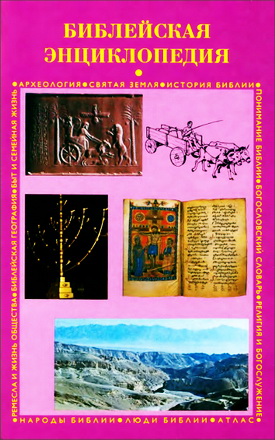
Cambridge Companions - Ancient Philosophers and Their Works
Plato (427-347 B.C.) stands at the head of our philosophical tradition, being the first Western thinker to produce a body of writing that touches upon the wide range of topics that are still discussed by philosophers today under such headings as metaphysics, epistemology, ethics, political theory, language, art, love, mathematics, science, and religion. He may in this sense be said to have invented philosophy as a distinct subject, for although all of these topics were, of course, discussed by his intellectual predecessors and contemporaries, he was the first to bring them together by giving them a unitary treatment. He conceives of philosophy as a discipline with a distinctive intellectual method, and he makes radical claims for its position in human life and the political community. Because philosophy scrutinizes assumptions that other studies merely take for granted, it alone can give us genuine understanding; since it discovers a realm of objects inaccessible to the senses and yields an organized system of truths that go far beyond and in some cases undermine common sense, it should lead to a transformation in the way we live our lives and arrange our political affairs. It is an autonomous subject and not the instrument of any other discipline, power, or creed; on the contrary, because it alone can grasp what is most important in human life, all other human endeavors should be subordinate to it.
This conception of philosophy and the substantive philosophical theories that support it were controversial from the very start; although there have been long periods during which some form of Platonism flourished,* there have always been at the same time various forms of opposition to Plato's astonishingly ambitious conception of the subject.* For this reason he can be considered not only the originator of philosophy but the most controversial figure in its historical development. For one cannot argue that philosophy must limit its ambitions without understanding the almost limitless hopes that gave birth to the subject and explaining why these - all of them or some - are misguided or unachievable. If we are forced to retreat from his ideal of a comprehensive and unitary understanding that transforms our lives and society, we must decide what alternative intellectual goal to put in its place. For this reason, Plato provides us with an invaluable test case and standard of comparison: Our conception of what philosophy should be (and whether there should be any such thing) must be developed in agreement with or opposition to alternatives provided by the history of the subject, and so inevitably we must ask whether the ambitions of the subject's inventor are worthy and capable of fulfillment.
The Cambridge Companion to Plato
Edited by Richard Kraut, 2006
- 1. Introduction to the study of Plato. RICHARD KRAUT
- 2. Plato: The intellectual background. T. H. IRWIN
- 3. Stylometry and chronology. LEONARD BRANDWOOD
- 4. Socrates and the early dialogues. TERRY PENNER
- 5. Mathematical method and philosophical truth. IAN MUELLER
- 6. Inquiry in the Meno. GAIL FINE
- 7. Plato and Greek religion. MICHAEL L. MORGAN
- 8. Platonic love. G. R. F. FERRARI
- 9. Plato's metaphysical epistemology. NICHOLAS P. WHITE
- 10. The defense of justice in Plato's Republic. RICHARD KRAUT
- 11. Plato on poetic creativity. ELIZABETH ASMIS
- 12. Good-bye to the Third Man. CONSTANCE C. MEINWALD
- 13. Plato's Sophist on false statements. MICHAEL FREDE
- 14. Disintegration and restoration: Pleasure and pain in Plato's Philebus. DOROTHEA FREDE
- 15. Plato's later political thought. TREVOR J. SAUNDERS
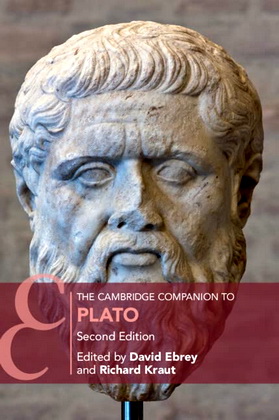
The Cambridge Companion to Plato
2nd edition, edited by David Ebrey and Richard Kraut, 2022
- 1 - Introduction to the Study of Plato. David Ebrey, Richard Kraut
- 2 - Plato in his Context. T. H. Irwin
- 3 - Stylometry and Chronology. Leonard Brandwood
- 4 - Plato’s Socrates and his Conception of Philosophy. Eric Brown
- 5 - Being Good at Being Bad: Plato’s Hippias Minor. Agnes Callard
- 6 - Inquiry in the Meno. Gail Fine
- 7 - Why Erōs? Suzanne Obdrzalek
- 8 - Plato on Philosophy and the Mysteries. Gábor Betegh
- 9 - The Unfolding Account of Forms in the Phaedo. David Ebrey
- 10 - The Defense of Justice in Plato’s Republic. Richard Kraut
- 11 - Plato on Poetic Creativity: A Revision. Elizabeth Asmis
- 12 - Betwixt and Between: Plato and the Objects of Mathematics. Henry Mendell
- 13 - Another Goodbye to the Third Man. Constance C. Meinwald
- 14 - Plato’s <span class='italic'>Sophist</span> on False Statements. Michael Frede
- 15 - Cosmology and Human Nature in the Timaeus. Emily Fletcher
- 16. - The Fourfold Classification and Socrates’ Craft Analogy in the Philebus. Verity Harte
- 17 - Law in Plato’s Late Politics. Rachana Kamtekar, Rachel Singpurwalla

The Cambridge Companion to Socrates
Edited by Donald R. Morrison, 2011
- 1 - The Rise and Fall of the Socratic Problem. Louis-André Dorion
- 2 - The Students of Socrates. Klaus Döring
- 3 - Xenophon and the Enviable Life of Socrates. David K. O’connor
- 4 - Socrates in Aristophanes’ Clouds. David Konstan
- 5 - Socrates and the New Learning. Paul Woodruff
- 6 - Socratic Religion. Mark L. Mcpherran
- 7 - Socrates and Democratic Athens. Josiah Ober
- 8 - Socratic Method. Hugh H. Benson
- 9 - Self-Examination. Christopher Rowe
- 10 - Socratic Ignorance. Richard Bett
- 11 - Reconsidering Socratic Irony. Melissa Lane
- 12 - Socratic Ethics and the Socratic Psychology of Action. Terry Penner
- 13 - Socrates and Eudaimonia. Christopher Bobonich
- 14 - Socrates’ Political Philosophy. Charles L. Griswold
- 15 - Socrates in Later Greek Philosophy. A. A. Long
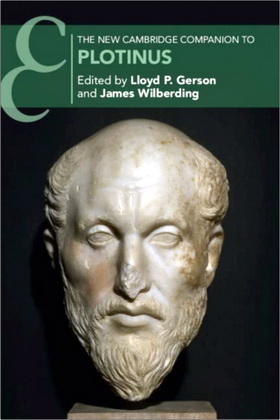
The New Cambridge Companion to Plotinus
Edited by Lloyd P. Gerson and James Wilberding, 2022
- Introduction. Lloyd P. Gerson
Part I - Historical Context
- 1 - Plato and Aristotle in the Enneads. Eric D. Perl
- 2 - Plotinus, Gnosticism, and Christianity. Sebastian Gertz
- 3 - From Plotinus to Proclus. Marije Martijn
- 4 - The One as First Principle of All. Gwenaëlle Aubry
Part II - Metaphysics and Epistemology
- 5 - Plotinus and the Theory of Forms. Mauro Bonazzi
- 6 - Plotinus on Number. Svetla Slaveva-Griffin
- 7 - Plotinus on Categories. Michael J. Griffin
- 8 - Plotinus on Knowledge. Christian Tornau
Part III - Psychology
- 9 - The Embodied Soul. Damian Caluori
- 10 - Self-Knowledge and Self-Reflexivity. Pauliina Remes
Part IV - Natural Philosophy
- 11 - Eternity and Time. Riccardo Chiaradonna
- 12 - Composition of Sensible Bodies. D. M. Hutchinson
- 13 - Nature: Plotinus’ Fourth Hypostasis? James Wilberding
Part V - Ethics
- 14 - Matter and Evil. Jan Opsomer
- 15 - Virtue and Happiness. Miira Tuominen
- 16 - Plotinus on Providence and Fate. Christopher Isaac Noble
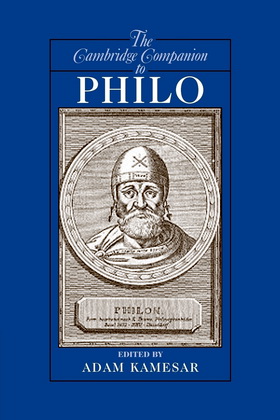
The Cambridge Companion to Philo
Edited by Adam Kamesar, 2009
- Introduction. Adam Kamesar
Part 1: Philo’s Life and Writings
- 1. Philo, His Family, and His Times. Daniel R. Schwartz
- 2. The Works of Philo. James R. Royse
- 3. Biblical Interpretation in Philo. Adam Kamesar
Part 2: Philo’s Thought
- 4. Philo’s Thought within the Context of Middle Judaism. Cristina Termini
- 5. Philo’s Theology and Theory of Creation. Roberto Radice
- 6. Philo’s Ethics. Carlos Lévy
Part 3: Philo’s Influence and Significance
- 7. Philo and the New Testament. Folker Siegert
- 8. Philo and the Early Christian Fathers. David T. Runia
- 9. Philo and Rabbinic Literature. David Winston
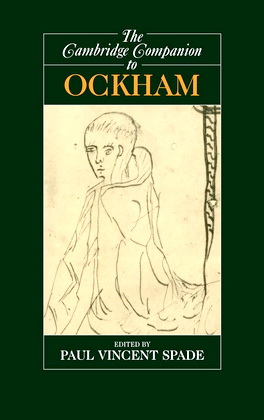
The Cambridge Companion to Ockham
Edited by Paul Vincent Spade, 1999
- Introduction. Paul Vincent Spade
- 1 - The Academic and Intellectual Worlds of Ockham. William J. Courtenay
- 2 - Some Aspects of Ockham's Logic. Calvin G. Normore
- 3 - Semantics and Mental Language. Claude Panaccio
- 4 - Is There Synonymy in Ockham's Mental Language? David Chalmers
- 5 - Ockhams' Nominalist Metaphysics: Some Main Themes. Paul Vincent Spade
- 6 - Ockham's Semantics and Ontology of the Categories. Gyula Klima
- 7 - Ockham's Philosophy of Nature. André Goddu
- 8 - The Mechanisms of Cognition: Ockham on Mediating Species. Eleonore Stump
- 9 - Ockham's Misunderstood Theory of Intuitive and Abstractive Cognition. Elizabeth Karger
- 10 - Ockham's Ethical Theory. Peter King
- 11 - Ockham on Will, Nature, and Morality. Marilyn McCord Adams
- 12 - Natural Law and Moral Omnipotence. A. S. McGrade
- 13 - The Political Writings. John Kilcullen
- 14 - Ockham on Faith and Reason. Alfred J. Freddoso
- 15 - Ockham's Repudiation of Pelagianism. Rega Wood
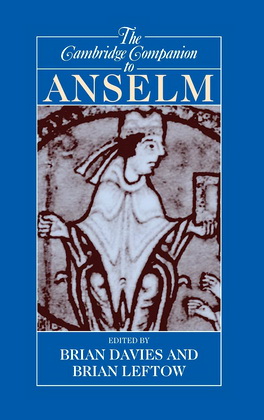
The Cambridge Companion to Anselm
Edited by Brian Davies and Brian Leftow, 2006
- Introduction. Brian Davies, Brian Leftow
- 1 - Anselm’s life, works, and immediate influence. G. R. Evans
- 2 - Anselm on faith and reason. Marilyn McCord Adams
- 3 - Anselm, Augustine, and Platonism. Gareth Matthews
- 4 - Anselm’s philosophy of language. Peter King
- 5 - Anselm on modality. Simo Knuuttila
- 6 - Anselm’s perfect-being theology. Brian Leftow
- 7 - Anselm and the ontological argument. Brian Davies
- 8 - Anselm’s account of freedom. Sandra Visser, Thomas Williams
- 9 - Anselm on truth. Sandra Visser, Thomas Williams
- 10 - Anselm on ethics. Jeffrey E. Brower
- 11 - Anselm on the Trinity. William E. Mann
- 12 - Anselm on atonement. David Brown
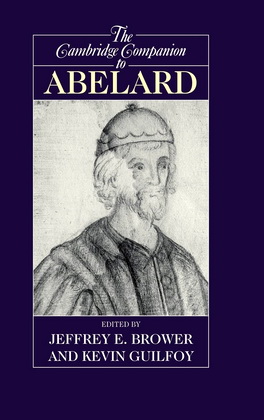
The Cambridge Companion to Abelard
Edited by Jeffrey E. Brower and Kevin Guilfoy, 2004
- Introduction. Jeffrey E. Brower and Kevin Guilfoy
- 1. Life, milieu, and intellectual contexts. John Marenbon
- 2. Literary works. Winthrop Wetherbee
- 3. Metaphysics. Peter King
- 4. Philosophy of language. Klaus Jacobi
- 5. Logic. Christopher J. Martin
- 6. Mind and cognition. Kevin Guilfoy
- 7. Trinity. Jeffrey E. Brower
- 8. Sin, grace, and redemption. Thomas Williams
- 9. Ethics. William E. Mann
- 10. Influence. Yukio Iwakuma
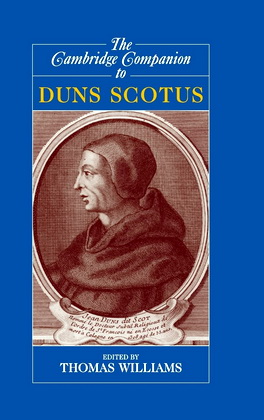
The Cambridge Companion to Duns Scotus
Edited by Thomas Williams, 2002
- Introduction: The Life and Works of John Duns the Scot. Thomas Williams
- 1 - Scotus on Metaphysics. Peter King
- 2 - Space and Time. Neil Lewis
- 3 - Universals and Individuation. Timothy B. Noone
- 4 - Duns Scotus’s Modal Theory. Calvin G. Normore
- 5 - Duns Scotus’s Philosophy of Language. Dominik Perler
- 6 - Duns Scotus on Natural Theology. James F. Ross, Todd Bates
- 7 - Duns Scotus on Natural and Supernatural Knowledge of God. William E. Mann
- 8 - Philosophy of Mind. Richard Cross
- 9 – Cognition. Robert Pasnau
- 10 - Scotus’s Theory of Natural Law. Hannes Möhle
- 11 - From Metaethics to Action Theory. Thomas Williams
- 12 - Rethinking Moral Dispositions: Scotus on the Virtues. Bonnie Kent
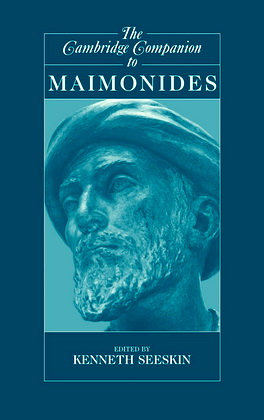
The Cambridge Companion to Maimonides
Edited by Kenneth Seeskin, 2005
- Introduction. Kenneth Seeskin
- 1 - Moses Maimonides: An Intellectual Portrait. Joel L. Kraemer
- 2 - The <span class='italic'>Guide </span>and Maimonides’ Philosophical Sources. Alfred L. Ivry
- 3 - Metaphysics and Its Transcendence. Kenneth Seeskin
- 4 - Maimonides’ Epistemology. Josef Stern
- 5 - Maimonides’ Philosophy of Science. Gad Freudenthal
- 6 - Maimonides’ Moral Theory. David Shatz
- 7 - Maimonides’ Political Philosophy. Haim Kreisel
- 8 – Jurisprudence. David Novak
- 9 - Bible Commentary. Sara Klein-Braslavy
- 10 - Spiritual Life. Menachem Kellner
- 11 - Maimonides: Esotericism and Educational Philosophy. Aviezer Ravitzky
- 12 - Maimonides--A Guide for Posterity. Seymour Feldman

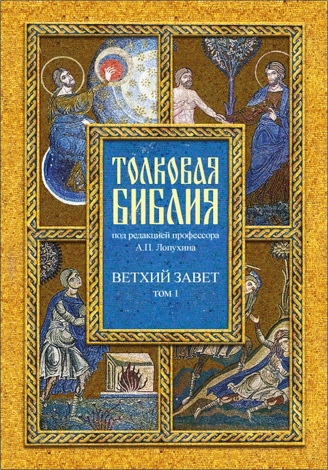
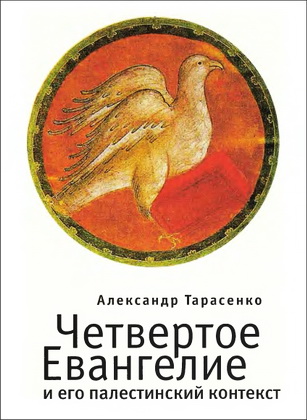

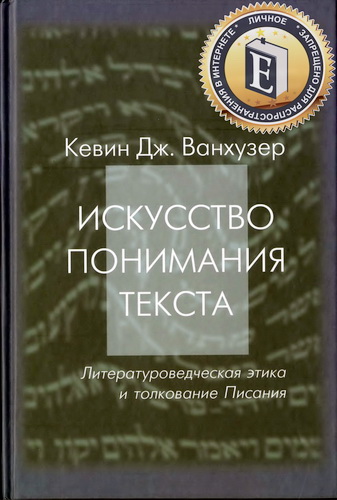
Комментарии
Пока нет комментариев. Будьте первым!